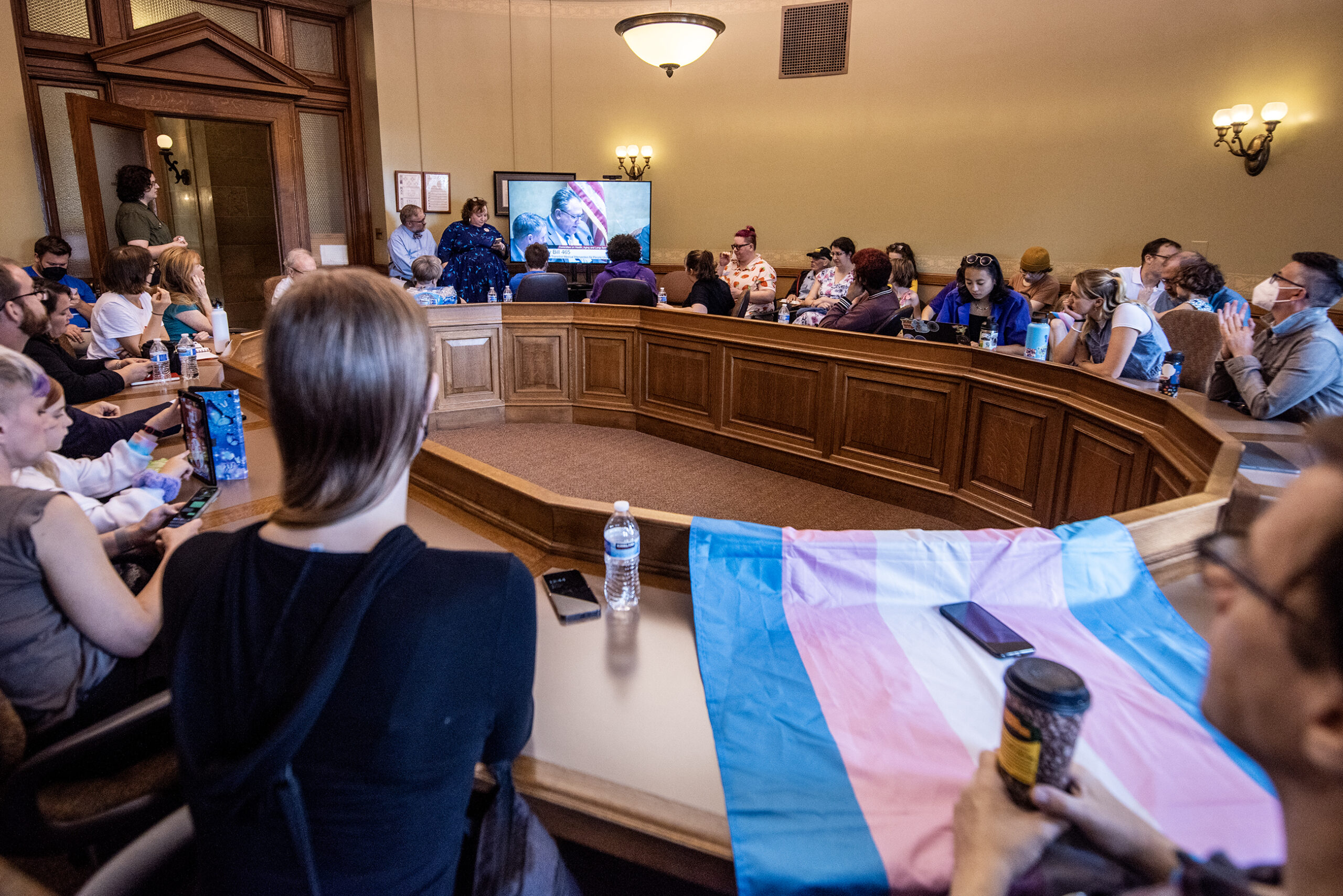Environmental groups and the Ho-Chunk Nation are taking legal action in an attempt to block a frac sand mine from filling a wetland in Monroe County. We learn about their case. Billions of dollars a year are spent on health and medical research, and our guest says not all of it ends up benefiting patients. He talks about his investigation into sloppy science that offers false hope and few solutions. We also hear about a group of Madison musicians trying to ensure equality in the city’s music scene.
Featured in this Show
-
Environmental Groups And Ho-Chunk Nation Take Western Wisconsin Frac Sand Mine To Court
Environmental groups and the Ho-Chunk Nation are bringing the Wisconsin Department of Natural Resources to court. They’re challenging the DNR over the agency’s approval of a permit to allow a frac sand mine to fill a wetland in Monroe County. We get the details from a reporter.
-
Madison Musicians Fight For Inclusivity
We learn about a group of musicians who are helping to promote inclusion and equality in the Madison music community.
-
Madison Musicians Work To Create More Inclusive Music Scene
A group of Madison musicians is trying to break through barriers and create a more inclusive Madison music scene.
“There’s, I think, an idea that goes along with rock ‘n’ roll that it’s a dude thing,” said Madison-based musician Tessa Echeverria.
That feeling, along with personal experiences of prejudice, led Echeverria and three of her fellow female musicians to found Half-Stack Sessions, a group dedicated to making women and the LGBT community more visible in the Madison-area music scene.
“A full stack is a larger amp, and it creates more noise. And a half stack is a softer amplifier. So we’re relating that to our experience as female musicians, saying, ‘We are not seen as loud or as rock ‘n’ roll as our male counterparts, regardless of what music we’re actually playing,” Echeverria said.
But the group is working to change that. It’s “a safe space where people can grow as musicians and start new projects and learn new skills,” she said.
Half-Stack Sessions has a meeting once a month where members share their experiences as being female, non-binary or LGBT in the music world. They might talk about going to a Guitar Center and having trouble convincing sales people they actually want to buy an electric guitar, about being perceived as not being in the band or not being an engineer or producer, or being groped at a crowded show, Echeverria said.
“It’s not just that the people on the stage are normally male. (It’s also) the producers, the songwriters, the engineers, the people who are running the record labels, the people who are running the venues,” she said. “Those are all also incredibly male-dominated fields. They’re putting out a certain perspective, and it makes it harder for women to enter into different levels of the music scene.”
With its monthly meetings, Half-Stack Sessions hopes to promote connections among musicians who feel left out of the male-dominated scene.
But it’s not just about having a space to support certain people. It’s about bringing that pro-diversity ethic to the larger music scene, Echeverria said.
“I think that it’s important for oppressed groups to be able to have meeting places that are just theirs so that they can talk about their frustrations, learn things, ask questions. But then it’s important to take those conversations and pull them back into the broader context, and have that open dialogue, and have the whole community involved. I don’t want to have a separate show, I want to feel safe at whatever show I go to, and I want to be taken seriously when I go and play,” she said.
The group also puts on shows featuring female and LGBT musicians. Last month, Half-Stack Sessions had a showcase of local bands that benefited Domestic Abuse Intervention Services in Madison.
-
When Sloppy Health Science Hurts Patients And Wastes Money
NPR science reporter Richard Harris digs into the world of scientific research on health and medical issues–and finds a lot of bad science, leading to wasted money and false hope for patients,
Episode Credits
- Rob Ferrett Host
- Veronica Rueckert Host
- Amanda Magnus Producer
- Karl Christenson Producer
- Rob Ferrett Producer
- Rich Kremer Guest
- Richard Harris Guest
- Rob Ferrett Interviewer
Wisconsin Public Radio, © Copyright 2024, Board of Regents of the University of Wisconsin System and Wisconsin Educational Communications Board.

